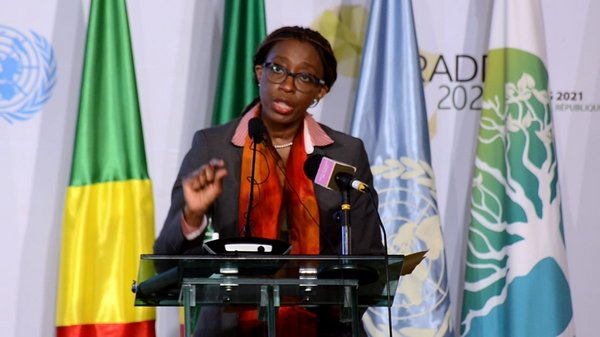- Share this article
- Subscribe to our newsletter
Towards a green and resilient Africa
Leaders from African countries met at the seventh Africa Regional Forum on Sustainable Development (ARFSD) to discuss the topic "Building forward better: towards a resilient and green Africa to achieve the 2030 Agenda and Agenda 2063". The four-day Forum was hosted by the Government of Congo Brazzaville and held virtually in early March 2021. The discussions showed that efforts by countries, including achievements made in reaching the SDGs and Agenda 2063, have been severely affected by the COVID-19 pandemic, setting back strides in addressing the continent's development needs.
Africa is a rich continent with a poor disposition in tracking and deploying economic resources towards its development. This continent can be green and resilient by turning political will into action in mobilising and using financial resources for sustainable development, leaders at ARFSD urged. They agreed that the recently launched African Continental Free Trade Area (AfCFTA) offers Africa an opportunity to grow green and build sustainable trade within Africa. Moreover they point to the importance of data, often lacking in African countries, which is a key component of tracking the SDGs.
Illicit financial flows hinder development
To develop transformative actions and investments needed to build forward better from the pandemic and move towards a resilient and green Africa that will achieve Agendas 2030 and 2063, the continent needs to cap illegal logging and deforestation which are fuelling illicit financial flows, urged Albert Muchangana, Commissioner for Economic Development, Trade, Industry and Mining at the African Union. He noted that illicit financial flows were undermining the domestic resource base, adding that it was imperative for Africa to mobilise public and private capital for low carbon growth.
According to the United Nations Conference on Trade and Development (UNCTAD) Africa can halve the annual financing gap of USD 200 billion it faces to achieve the SDGs by stemming illicit capital flight. Africa loses an estimated USD 88.6 billion annually in illicit financial flows which include money and assets sourced illegally and moved across borders.
In addition, Africa needs to restructure its external debt to unlock resources that can go into social protection, amongst other programmes to the improve livelihoods of citizens, panellists agreed.
Scaling up investments in rural transformation
The transformation of the African food system is crucial to help end hunger, said the Food and Agriculture Organization’s (FAO) Regional Representative for Africa, Abebe Haile-Gabriel, adding that the adoption of holistic multi sectoral approaches was needed. Africa is not on track to achieve zero hunger by 2030, he stated, reviewing progress made by the continent towards attaining that goal so far at a meeting at ARFSD, co-organised by the Economic Commission for Africa (ECA) and the World Food Programme (WFP), in collaboration with the Government of the Republic of Congo.
Chris Toe from the WFP said African countries need to prioritise and scale up investments in rural transformation, sustainable infrastructure and human capital development as they work towards eliminating hunger and food insecurities. This, he said, will not only help to sustain ongoing progress, but also assist in the continent’s quest to achieve zero hunger as espoused in the SDGs and Africa’s 2025 commitment to end hunger and the Agenda 2063 aspirations.
Key highlights of the Forum’s resolutions
Key highlights of the Forum’s resolutions, which are to be reviewed by member-countries until March 14, 2021, include the need for countries to pay attention to data collection and the Voluntary National Reviews and Voluntary Local Reviews. Moreover, they cover the need for the SDGs to address poverty and gender across all sectors; to reduce illicit financial flows, strengthen smallholder farmers and look at using the AfCFTA to create jobs in the agriculture sector.
Participants also called on governments and the private sector to enhance value chains across the continent and the use of innovative financing to address climate change.
Ines Lechner, Rural 21
Read more at the website of the United Nations Economic Commission for Africa





Add a comment
Be the First to Comment